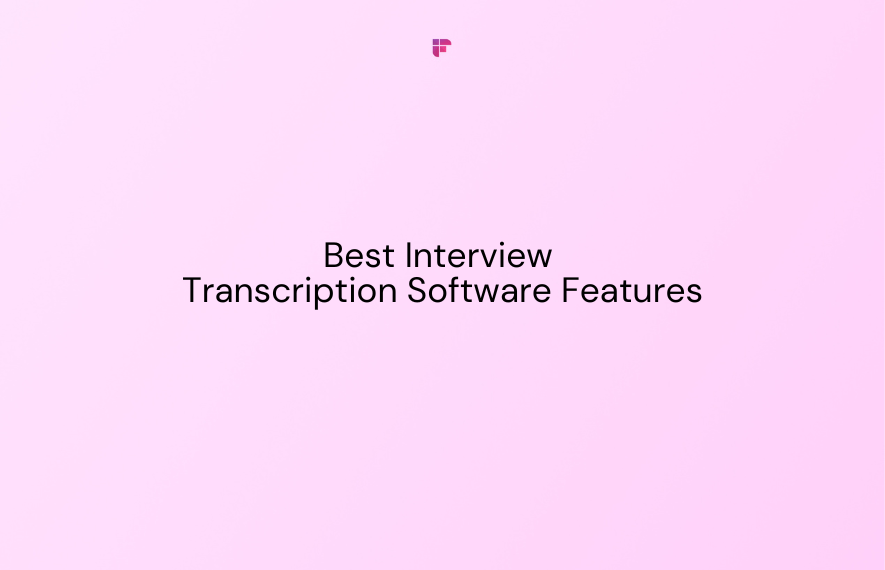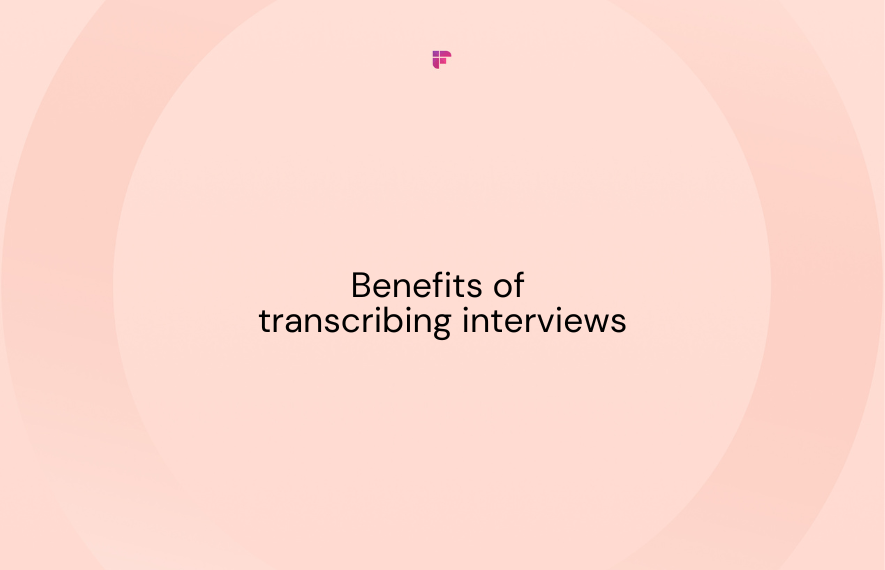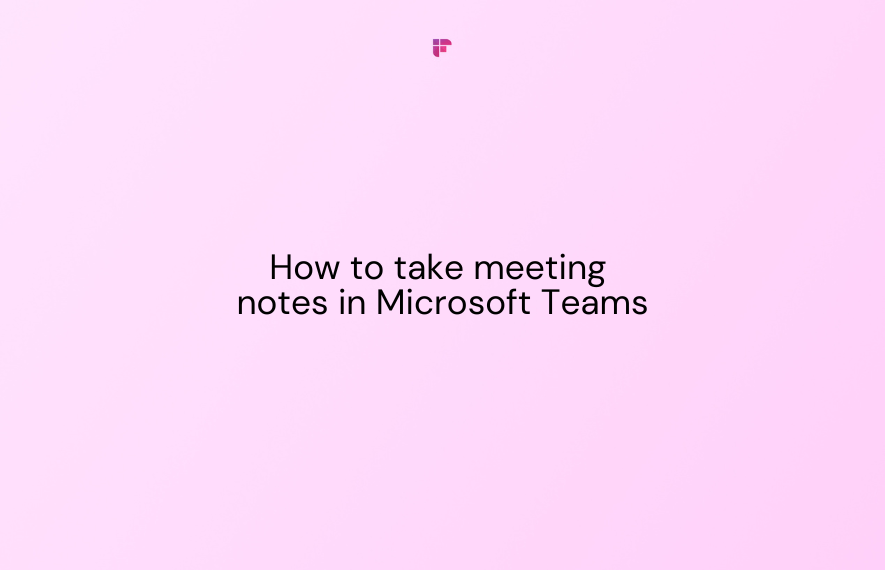Transcribing interviews means converting recorded audio or video conversations into written form. While some may find this process tedious, the benefits of transcribing interviews make it well worth the effort.
In this blog, we will explore:
- how to transcribe an interview, and
- the top 10 benefits of transcribing interviews.
So, read on to discover why you should start transcribing interviews today.
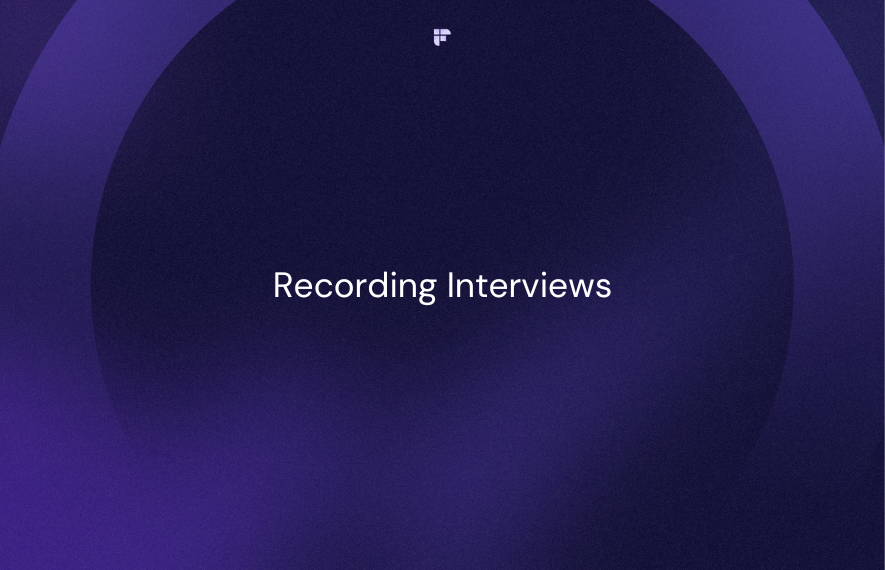
How to transcribe an interview?

There are two ways to transcribe an interview:
- Manual transcription
- Transcribe using AI tools
Transcribing interviews manually involves you or your hired transcriber listening to the interview recordings and typing out each word spoken. But this process can be time-consuming, tedious, and error-prone.
Instead, use an AI transcription tool to transcribe interviews automatically within minutes. The transcription process with AI tools is simple.
For example, use Fireflies to transcribe your audio or video files. Just upload your files in MP3, MP4, M4A, or WAV format, and let Fireflies generate accurate transcripts, analyze the conversation, and offer a high-level summary in minutes. You can export the completed transcript in PDF, DOCX, SRT, CSV, and JSON format.
If you’re conducting remote interviews, allow Fireflies to join as a silent attendee. The tool will automatically record, transcribe, and summarize the conversation and save all the transcriptions in your Fireflies Notebook within a few minutes after the interview.
10 benefits of transcribing interviews
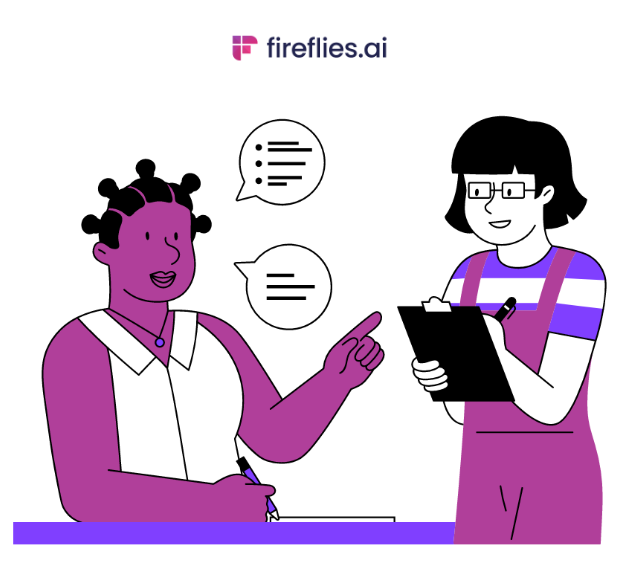
Whether you’re a podcaster, a star-performer recruiter, a researcher, or a passionate marketer, transcribing interviews can be a valuable investment of your time and effort.
Here are the 10 benefits of transcribing interviews.
1. Provides an accurate record of the conversation
When transcribing interviews, you capture the exact words and nuances spoken during the discussion in writing. This provides a permanent verbatim record of the information shared during the interview.
You can refer back to the transcript anytime to check or clarify information. Also, in legal proceedings, you can use these transcripts as valid evidence.
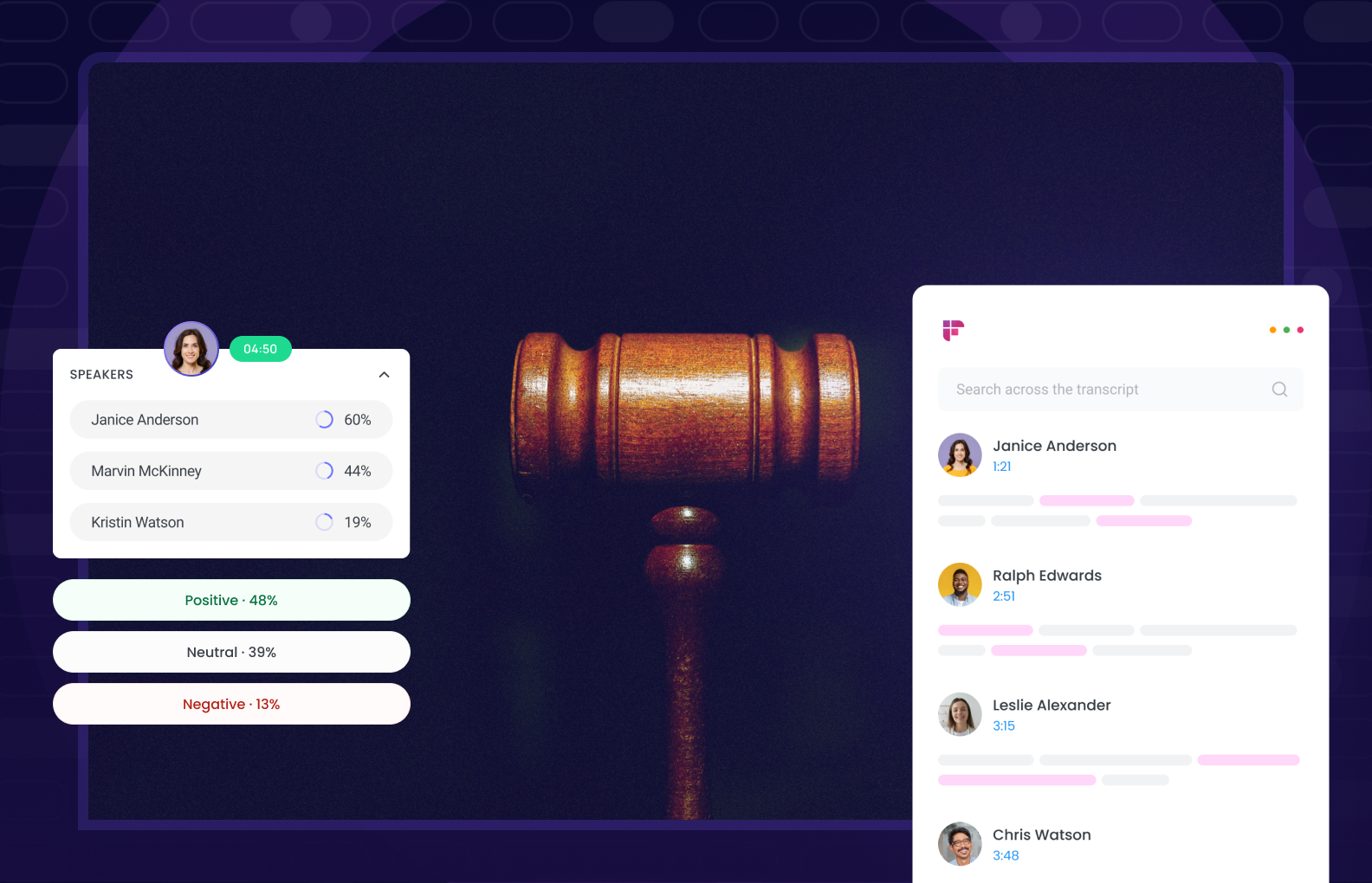
2. Makes conversation analysis easier
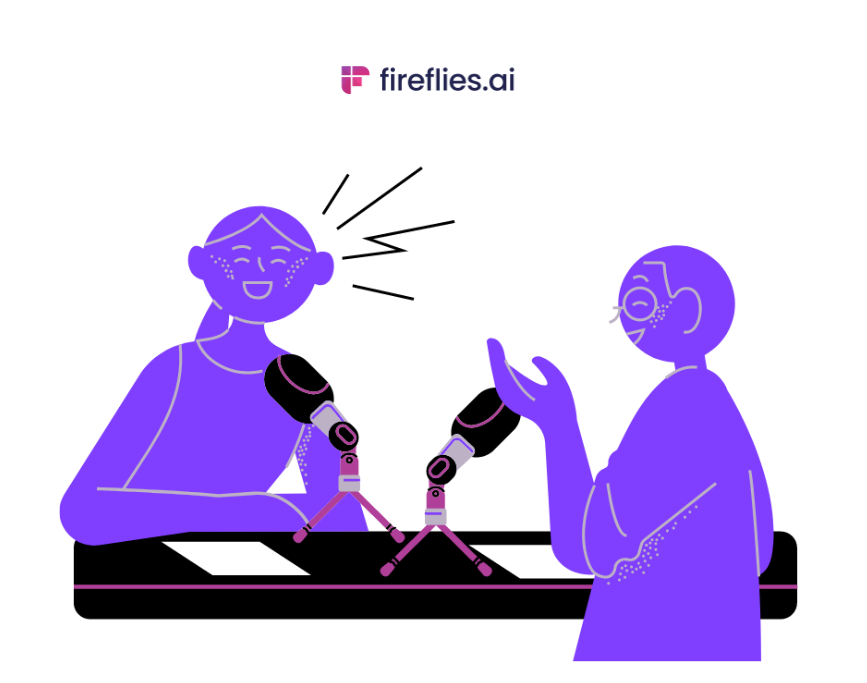
Another benefit of transcribing interviews is that you can analyze conversations. Some transcription software tools offer conversation intelligence that lets you identify patterns, themes, and other insights that may not be immediately noticeable from the spoken word.
Use these insights to understand the interviewee's perspectives better and improve your communication strategies.
For example, if transcript analytics reveals that you spoke more than the interviewee, you may need to revise your communication strategy. You can focus more on actively listening and asking open-ended questions to encourage the interviewee to talk more.
💡 Fireflies Tip
Fireflies is an AI Notetaker tool with an inbuilt Conversation Intelligence suite that helps you consolidate insights around speakers, topics, sentiments, and much more. Use Fireflies and unlock the knowledge buried inside your interviews.
3. Saves time and resources
According to Gartner, an interview can last 30 to 60 minutes. Transcribing interviews save time by eliminating the need to listen to lengthy audio recordings whenever you need to access specific data.
You can easily search within the transcript to extract the exact data you want in seconds. This way, you can save time and focus that energy on more productive tasks.
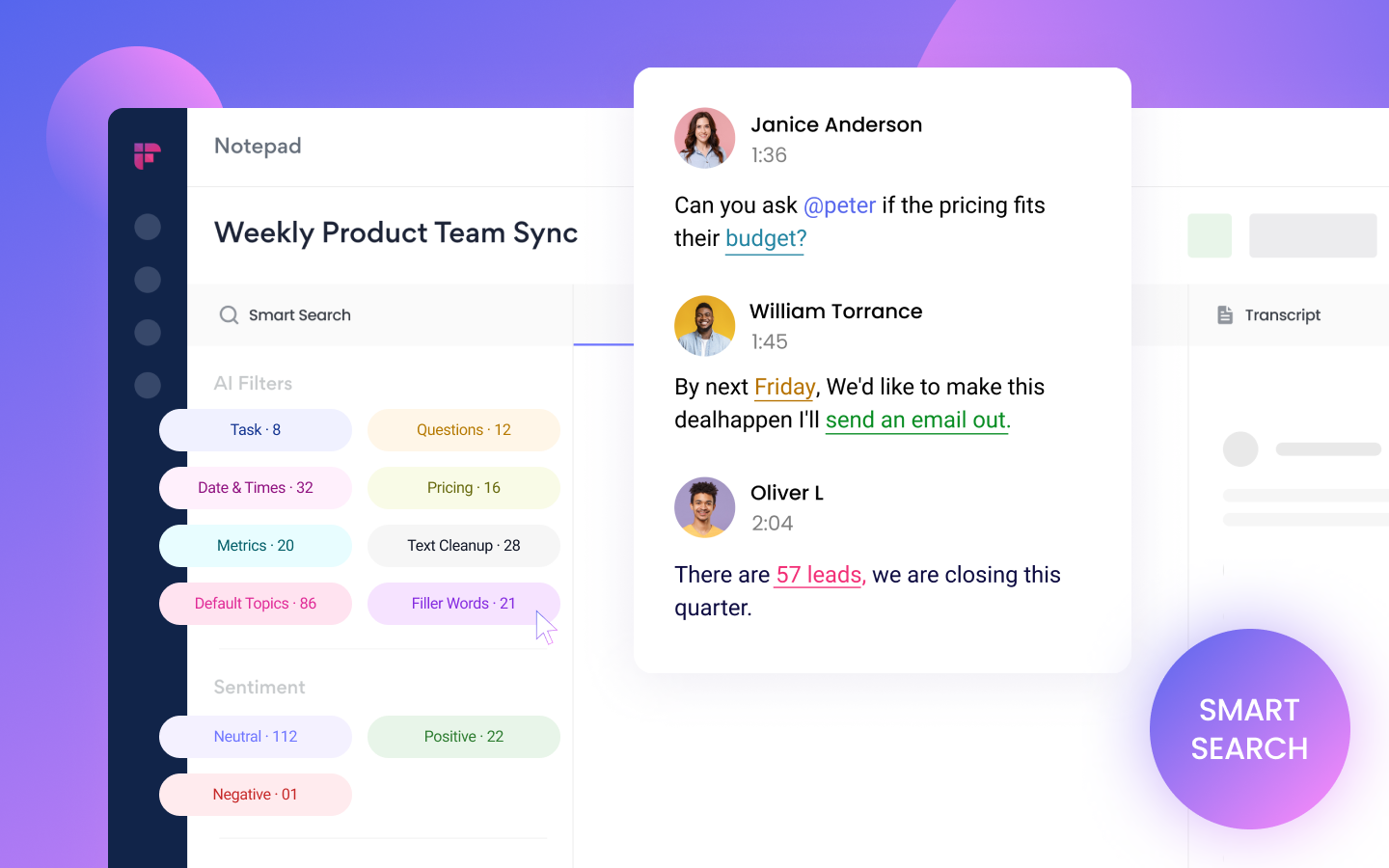
4. Enhances collaboration
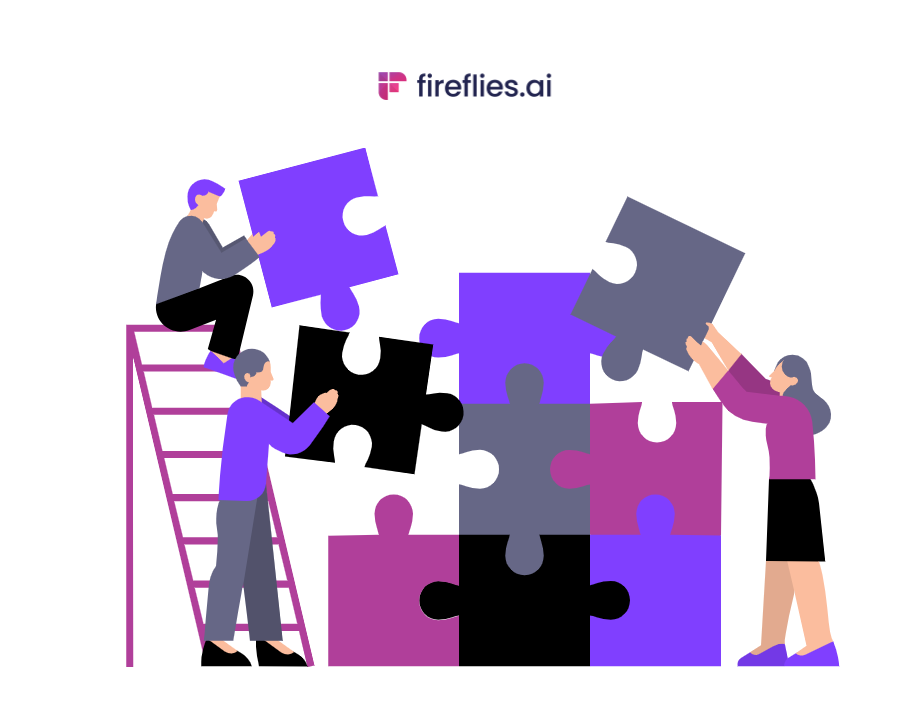
Unlike large video or audio interview files, interview transcripts are small, easily shareable text documents. Team members can effortlessly collaborate on this text document by sharing their interpretations and insights on the conversation as comments or threads.
Interview transcripts also allow people to consume the content in their preferred style. For instance, some prefer reading over listening. Similarly, others might want to translate the text into the language they are more comfortable in.
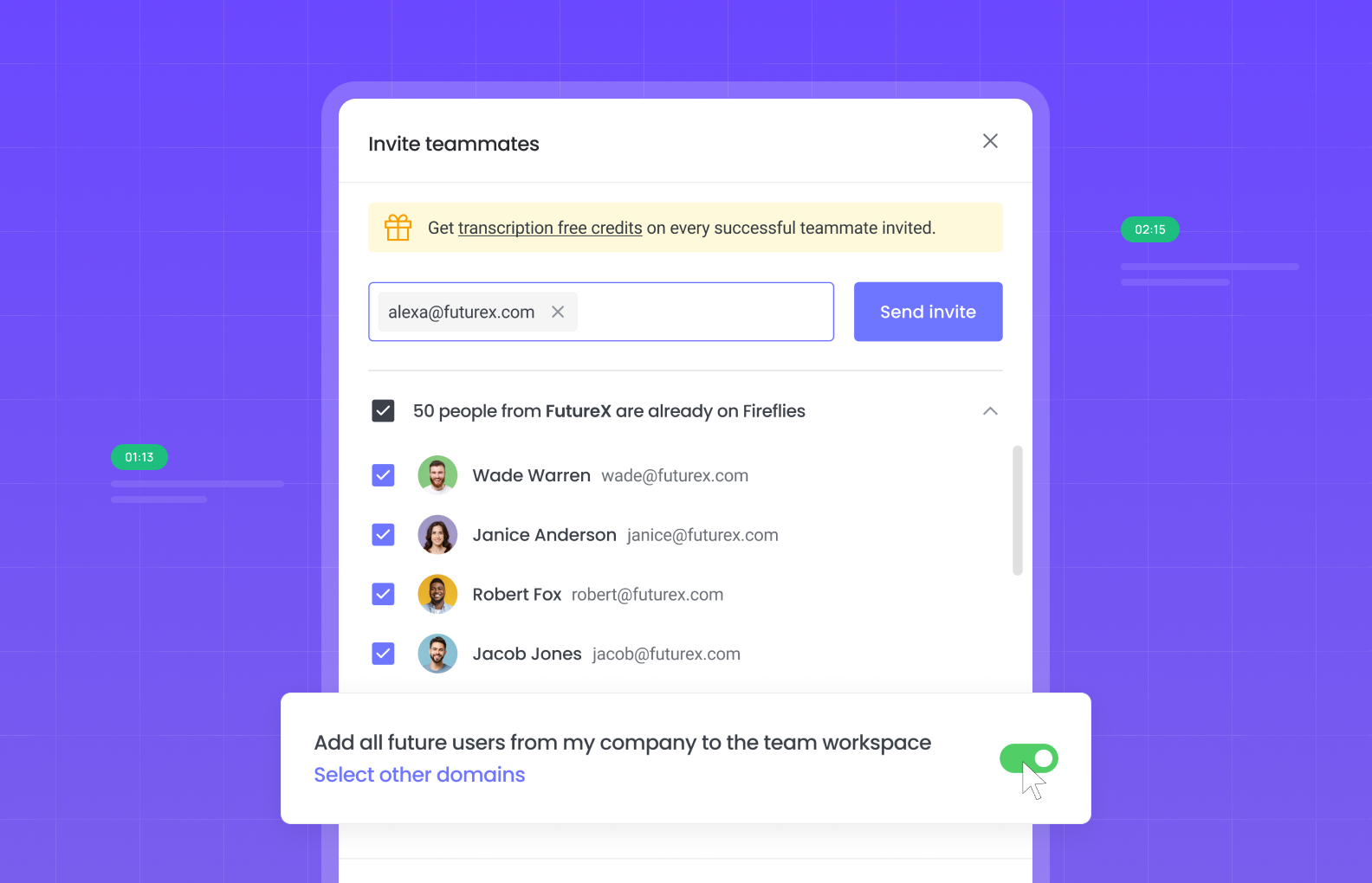
5. Streamline research
Transcripts can come in particularly handy if you’re conducting interviews on a large scale for research purposes.
Transcripts can be easily searched and annotated. This makes it easier to identify key themes and patterns in the interviews.
Also, as the information is stored in a standardized and organized format, comparing and analyzing data across multiple participants or interviews is easier.
6. Increases accessibility
Another benefit of transcribing an interview is increased accessibility. Transcribing interviews can make your content more accessible for non-native speakers who struggle to understand the spoken language. Transcription also offers the unique benefit of multimodal audio and text access to the interview content.
With the written transcription, individuals who are deaf or hard of hearing can access the interview content more easily, as can those who prefer to read rather than listen.
7. Improves quality control
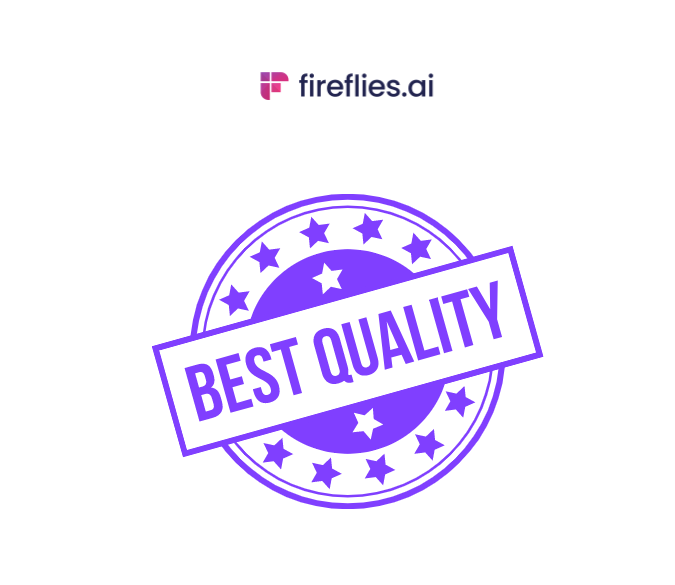
Interview transcripts are a great tool to verify the accuracy of interviews, identify errors or inconsistencies, and check for standardized processes.
You can compare the transcript to the audio and ensure all the information passed is accurate and complete.
Also, teammates who were absent during the interview can refer to the transcript to accurately review and repurpose the information gathered.
8. Eases content repurposing
Transcribing interviews helps you create an easily accessible source of valuable information. You can use this to create other forms of content, such as blog posts, articles, social media posts, and more.
Instead of listening to an audio or video recording, simply read through the transcript and quickly find the information you can repurpose. This allows you to easily share your findings with a wider audience and get the most out of your interviews.
If you wish to repurpose your interviews and create different types of content from them, use Fireflies AskFred. AskFred brings the power of ChatGPT to meetings. All you need to do is ask what happened during the interview, and AskFred will provide all the answers. You can also use it to create post-meeting content like blogs, emails, and social media posts that you quickly share on any platform.
9. Enhances communication

You can use the interview transcripts as a neutral source of information to resolve conflicts and ensure everyone’s on the same page about the interview.
Additionally, if you face difficulty catching the accents or dialects of the interviewee, you can refer to the transcripts to easily comprehend the conversation.
It also provides a written record of decisions and agreements, which helps ensure accountability and transparency.
10. Facilitates translation
Listening to an audio recording and translating it word by word can be tedious. Instead, you can simply upload the transcribed interview document to an online translator to easily get the translation of an entire conversation in your desired language in seconds.
Transcribing interviews makes translation easier and eliminates language barriers, allowing you to share and acquire information without any difficulty.
In conclusion,
Transcribing interviews isn't just about creating a written record of spoken words.
It's an effective method that can help you in many ways—it improves communication, eases content repurposing, enhances collaboration, and even creates reliable evidence for legal proceedings!
So, start transcribing and unlock the full potential of your interviews today!
